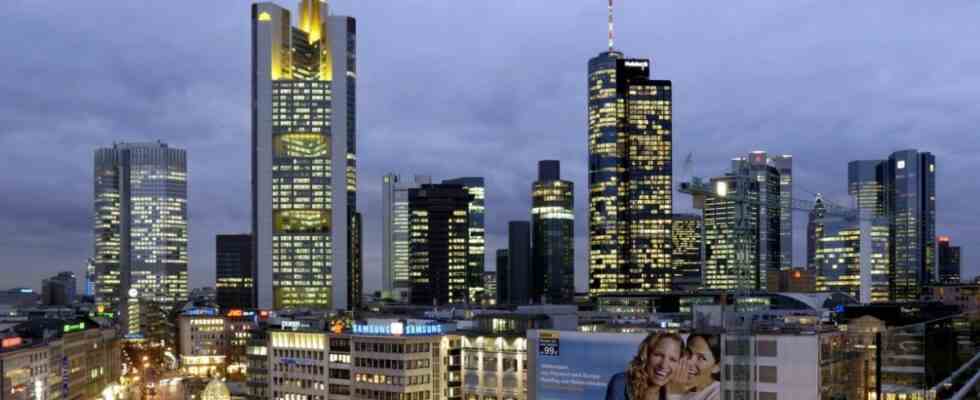Recently, random prizes have not only been found in gambling – that’s why the federal government now wants to skim off profits from companies if they profit undeservedly from the energy crisis. What is now completely lost in the debate: Europe’s banks are waving random earnings of up to 40 billion euros. There is no need to explain that this is quite a lot. It corresponds to more than half of the current relief package, but also half of what the state had to spend to rescue German banks during the financial crisis. The matter is therefore unacceptable for several reasons.
The background is a special loan program by the European Central Bank (ECB) for the banking sector after the outbreak of the Corona crisis. It is called TLTRO 3 and has the side effect that the participating banks get money as a gift. A year later, for example, a bank only has to repay 4,950,000 euros from a five million euro loan from the ECB. The ECB wanted to prevent a credit crunch. But it was already in the Corona period the program questionable, because the banks are more likely to have made the money available to large companies, which had hardly any refinancing problems anyway. There were no incentives to cater to smaller firms that have poor access to credit. The matter has therefore “distorted the lending behavior” of the banks, even the analysts at Commerzbank wrote. The excessive dependence of European companies on bank financing, which is often invoked in specialist circles, is likely to have increased as a result.
With the recent rate hike, however, the program is now only really interesting for the banks. Although there have been no fresh TLTRO loans for the institutes since the end of June, the loans will not expire until 2024. The highlight: Until then, the financial institutions can carry their excess liquidity, including the special loans, to the ECB and collect 0.75 percent interest – without risk and practically without effort.
So a chance win? Quite possible. Surprisingly, the ECB has not now capped earnings, which arguably would have been technically possible. Did you miss it? That would also be questionable, but then the central bankers should quickly put a lid on it. It would be worse if the ECB had calculated the chance profits, for example to strengthen the banks before “a hard winter”, as a rating analyst suspects. However, that would be scandalous and would contradict all the lessons of the financial crisis.
Risk-free returns have no place in a market economy
Banks, it was said, should never again be bailed out with tax money or government-guaranteed funds. Accordingly, the financial institutions have increased their reserves in recent years and subjected themselves to stricter regulation. Above all, however, since then there has been a roadmap showing how systemically important banks can also be wound up without triggering a financial crisis and without requiring taxpayers’ money. Precisely by asking the private investors to pay up. In addition, the banks have all kinds of options to react independently to crises: they can suspend dividends and withhold bonuses. That’s not nice for shareholders and employees, but it’s part of the market economy. And haven’t the financial institutions repeatedly emphasized how stable they are, how well business is going despite everything? It is therefore no longer necessary for the banks to continue paying into a Europe-wide resolution fund, according to the industry lobby.
The ECB should take the banks at their word, even in turbulent times. In any case, risk-free but state-guaranteed returns have no place in a market economy. And a credit crunch can probably not be prevented by special loans with the watering can, but rather individual help is needed, if at all. The fact that EU banking supervision is located under the umbrella of the ECB may now prove to be a mistake. In fact, the EU banking supervisory authority regularly subjects the 115 largest financial institutions to stress tests in which crises are run through. The ECB should therefore not make the mistake of stabilizing banks through the back door just to prove that its supervision is working.

